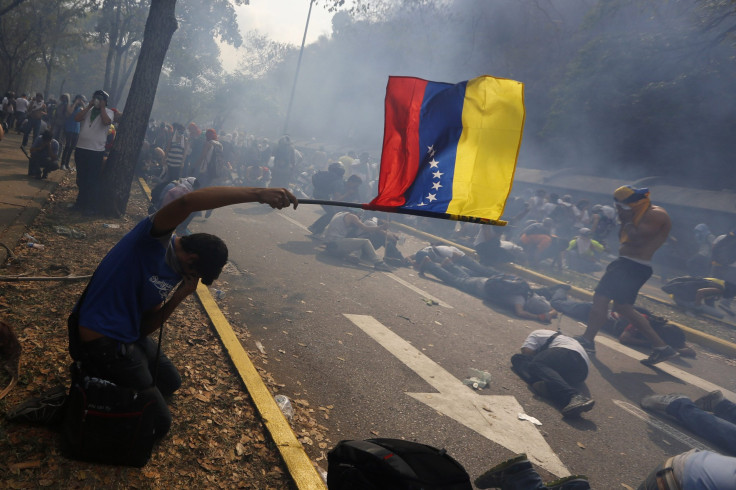Venezuela's Bolivar Currency Worth Less Than 'World of Warcraft' Cash

Venezuela has been dealing with a series of major political and financial problems lately, but in recent months, major inflation has been an additional and growing concern for residents. On Twitter, Venezuelan user @KalebPrime pointed out how bad inflation has gotten for the bolivar, the country’s currency:
It happened again, WoW gold is worth more than the Venezuelan Bolivar.
— Kaleb (@KalebPrime) July 14, 2017
Black Market: Bs.F 8493.97 per USD
WoW Token: ~8385g per USD. pic.twitter.com/Il7TVqYNsH
Read: Venezuela Election Step Toward Dictatorship, US Warns Amid Protests That Killed Several
Since then, the situation for the bolivar has gotten more severe. According to Venezuelan financial tracking site DolarToday, the current black market exchange rate sits at 12,197 bolivar per $1 U.S.D. By comparison, the rates for a token in World of Warcraft have gotten relatively more affordable. Via PlayerAuctions, third-party auctions for in-game tokens have an average rate of around 6,000 to 6,500 gold per $1 U.S.D.
Dólar paralelo supera la barrera de los Bs.12000 pic.twitter.com/421j3pNqkk
— DolarToday® (@DolarToday) August 1, 2017
In the massive online multiplayer title World of Warcraft, tokens can be used to add to a user’s subscription length or sold for gold or real money on third-party sites. Thanks to a recent update from developer Blizzard, the units can also be converted into cash for Battle.net accounts, which tie together other Blizzard titles like Overwatch.
While World of Warcraft and virtual currency rates alone hardly encompass the seriousness of Venezuela's current condition, they still help to illustrate the country’s suite of problems. Over the past few years, the country has struggled with inflation and other financial problems caused, in part, by overspending and a collapse in international oil prices. Oil has been a long-time economic tentpole for Venezuela, but since 2014, international prices have been cut significantly. Oil had traditionally hit peaks of around $100, but since the start of the year, international prices have averaged around $50 per unit.
As a result, Venezuela has been hit with a severe recession and mammoth inflation. Protests have been a regular occurrence against president Nicolas Maduro as shortages of groceries and other goods have affected residents. Inflation and ineffective monetary policy have also spurred Venezuelan residents to the black market to exchange currency, NPR reported in 2014.
Read: State Department Reacts To Attack On Venezuelan National Assembly
The news is similarly dismal for Venezuela’s government. Earlier this year, Venezuelan officials confirmed that the country only had $10.5 billion left in its foreign reserves. By comparison, the country had around $30 billion back in 2011. In addition, the financial situation for the country isn’t expected to improve for residents either. Venezuela’s inflation is predicted to spike by 1,660 percent in 2017 and 2,880 percent in 2018, according to a report from the International Monetary Fund.
Helicóptero Bolkow-105 (BO-105) CICPC-2 se posa sobre edificio en La Trinidad pic.twitter.com/4weyia9Mck
— @AereoMeteo (@AereoMeteo) June 28, 2017
In addition, similar turmoil has surrounded Maduro’s leadership of the country. Elected in 2013 for a six-year term, Maduro has seen strong opposition from lawmakers during the country’s current downswing. The Venezuelan government also took opposition leaders Leopoldo López and Antonio Ledezma into custody Tuesday, the BBC reported.
© Copyright IBTimes 2025. All rights reserved.





















